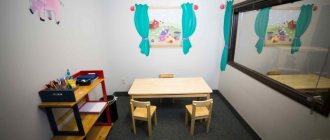- What is aphasia? All the reasons for its occurrence
- How do violations manifest themselves?
- What is the work of a speech therapist-aphasiologist?
- Demand for the profession
- Where to get the necessary education
- How much does a speech therapist-aphasiologist earn?
According to statistics in our country, of the number of people who have suffered a stroke (trauma or other dangerous conditions), approximately 35 percent, unfortunately, die, and 75 percent become disabled or acquire health problems, the main of which is impaired speech functions. A speech therapist-aphasiologist helps people with rehabilitation and speech restoration. Today we will talk about this profession, its functions and tasks, demand in the labor market and wages.
Who needs a specialist?
A speech therapist-aphasiologist is needed for people who have lost speech as a result of the following pathologies:
- traumatic brain injury;
- neuroinfection;
- brain tumor;
- brain surgery;
- other diseases.
Sometimes, as a result of these diseases and injuries, a person loses the ability to speak coherently, partially or completely. In order to restore speech, thereby improving the patient’s communication abilities and quality of life, a special individually developed rehabilitation program is necessary. This is exactly what a speech therapist-aphasiologist does.
Speech therapist's office
The speech therapist's office at the Yusupov Hospital is divided into several workers. They differ from each other in internal equipment. The speech correction area has 3 wall mirrors and posters. They depict bright pictures that help correct speech, and working tablets.
In the area intended for general speech underdevelopment, the following items are located:
- bright pictures for composing different stories;
- all kinds of crosswords, riddles, puzzles, word games;
- tablets with stories and fairy tales.
The speech therapy room has an educational area. It is necessary to restore writing skills. The common space in this area is equipped with a magnetic board, a pointer, and multi-colored magnets. In the speech therapist-aphasiologist's office there is a corner for speech correction. In this area there is a mirror with a large poster above it. It shows the main articulation exercises. The office is equipped with modern equipment that allows patients to control correct pronunciation.
What disorders does the specialist treat?
The concept of “speech impairment” is too broadly defined. To fully appreciate the work of an aphasiologist, it is important to find out what types of violations there are.
The classification of speech lesions consists of three subtypes:
- dysarthria;
- apraxia;
- mnestic and semantic disorders.
And each of these subtypes is worth considering in detail in order to understand how different the manifestations of aphasia can be. And, therefore, the approach to each patient must be strictly individual.
Dysarthria
Speech is a complex process in which not only the vocal cords are involved, but also the facial muscles, breathing, and the area of the brain - the speech motor analyzer. If the brain is damaged, speech may disappear completely - in this case there is reason to talk about such a serious phenomenon as anarthria. With dysarthria, a person retains the ability to speak, but his speech becomes unclear, slurred, and slurred.
In order to eliminate the disease, it is not enough to simply develop speech with special training. Treatment includes observation of the patient by neurologists, psychiatrists, functional studies for diagnosis and for the purpose of monitoring treatment (EEG, MRI of the brain, EMG, ENR). It is important to find out the type of dysarthria depending on the specific area of brain damage that led to a change in speech quality:
- bulbar – due to atony of the oral muscles, speech is slurred and simplified;
- pseudobulbar - muscle hypertonicity or even paralysis makes it impossible to raise the tip of the tongue;
- subcortical - unconscious muscle contractions lead to involuntary cries and spasms of articulation.;
- cerebellar - impaired coordination of the speech process leads to the fact that speech becomes either sharp and loud, or slow and slurred;
- cortical - a violation of articulatory motor skills makes speech incomprehensible or completely deprives a person of the ability to speak.
Also, a speech therapist-aphasiologist should classify dysarthria depending on the severity of symptoms.
| I degree | Speech defects are practically invisible to others, and only with a special examination can deviations in the patient’s speech be revealed. |
| II degree | The patient’s speech is clear and intelligible, but some defects that distort speech are present and noticeable to others. |
| III degree | The patient’s speech is confused, incomprehensible, and the words he speaks can only be understood by very close people or specialists who work with him. |
| IV degree | Speech is incomprehensible or even completely absent. |
How do violations manifest themselves?
For aphasia:
- speech is completely absent;
- the patient rearranges sounds and syllables;
- stutters;
- takes long pauses during a conversation;
- his voice sounds weak;
- characterized by “telegraphic speech” (short phrases);
- a person forgets the names of objects;
- ceases to understand words and sentences;
- cannot repeat a phrase after the interlocutor;
- becomes pathologically verbose with a complete lack of understanding of the meaning of other people’s speech;
- cannot read;
- does not understand the meaning of what is read;
- the patient acquires clumsy handwriting;
- When writing, demonstrates an inability to represent letter elements.
All these manifestations require immediate intervention from a specialist who will help restore function.
Apraxia
With apraxia, a person is deprived of the ability to reproduce certain movements and speak as a result of pathologies such as stroke, tumor, brain injury, Alzheimer's disease, Huntington's disease and others.
There are many classifications of apraxia that make up the diagnosis:
- by type of affected side: unilateral or bilateral;
- by localization of brain damage: frontal, cortical, motor, bilateral and premotor;
- by type of disorder: amnestic, oral, kinesthetic, articulatory, akinesthetic, afferent, constructive, ideokinetic, ideational and spatial.
Considering the variety of manifestations of apraxia and the fact of the presence of an organic lesion, a nephrologist, physiotherapist, social worker, and speech therapist-aphasiologist should work on the patient. Restoring speech is a long process, and even small progress can safely be considered a good result.
Mnestic and semantic speech disorders
Semantic speech disorders are observed with damage to the parietal and occipital parts of the brain. This pathology differs from others in that the patient ceases to understand the meaning of certain words: adverbs, proverbs, sayings, catchphrases, designations of relatedness or duration of time periods.
Thus, the patient’s speech becomes scant, dry, a significant decrease in vocabulary leads to the fact that speech, even clearly pronounced, is difficult to understand in the general context.
The mnestic type of speech disorder occurs when the temporal lobes of the brain are damaged. A feature of this type of aphasia is damage to auditory-verbal memory. That is, each new word heard erases the previous words heard from memory. Sometimes the patient repeats only the first and last word of each sentence he hears.
These types of aphasia are closely associated with impaired thinking. That is, in other cases, a person can retain all cognitive functions - the ability to remember, perceive and process information, but has difficulty speaking directly. In this case, the patient’s cognitive abilities are as impaired as their speech abilities.
How does an aphasiologist work?
The services of a speech therapist-aphasiologist are required immediately after a thorough diagnosis has been carried out to determine the causes of the speech disorder. Doctors draw up a treatment plan for the patient, which necessarily includes observation by an aphasiologist. Once the neurological examination is completed and the acute phase of the disease has resolved, the speech rehabilitation specialist is the primary physician with whom the patient collaborates.
The interaction between the aphasiologist and the patient should be long and close. The specialist must provide the patient with the necessary psychological assistance in order to maintain his motivation to continue treatment and fight to restore the quality of his life.
The doctor selects a set of exercises for each person individually. In order not to tire the patient and maintain his interest in exercises, you need to start with light and simple exercises. Lessons should not last longer than 10 minutes.
As the patient gets used to the exercises, they can be increased to 40 minutes per day. In addition, it is important that the patient’s loved ones continue to practice at home, or that he repeats the exercises on his own at a convenient time.
What is the work of a speech therapist-aphasiologist?
With aphasia, a whole group of diagnosticians and rehabilitation specialists works with patients, because it is necessary to identify the exact location of brain damage, its volume, diagnose body functions, and draw up an effective program for therapy, correction and prevention of disorders. In the difficult recovery process, a speech therapist-aphasiologist is involved in the early stages. His work will be long and consistent, and the results will appear more likely in children and adolescents than in older people.
In the process of work, the aphasiologist uses a combination of specific methods and exercises that are aimed at restoring functions and developing fine motor skills. Regular exercise will help:
- restore speech;
- synchronize all speech processes;
- improve understanding of the speech of others;
- improve writing, reading, and counting skills.
In order to competently perform their work, a specialist must understand the classification of speech disorders in adults and young patients and have all the necessary knowledge in the fields of speech therapy and aphasiology.
The main professional actions of an aphasiologist are as follows:
- conduct an initial neuropsychological examination;
- using diagnostic methods to identify speech, writing, and swallowing disorders;
- develop a recovery program taking into account the illness suffered and the individual health characteristics of the patient;
- conduct speech therapy sessions using massage techniques;
- prepare the speech apparatus for correction;
- apply correct speech breathing techniques;
- choose a set of exercises for the muscles of the speech apparatus (tongue, lips, cheeks);
- monitor and analyze the results of therapy.
Example exercises
An aphasiologist has in his arsenal a huge number of exercises, from which he creates a complex for a specific patient. But to understand approximately what exercises the patient will have to perform under the supervision of a speech therapist-aphasiologist, it is necessary to cite several of them.
- Lick your lips, slowly moving your tongue to the right, then to the left. Continue the exercise by rotating your tongue in a circular motion across your lips.
- Try to roll your tongue into a tube.
- Unclench your teeth, but close your lips tightly. Slowly push the tongue between the teeth, then between the lips.
- Alternately stretch the tip of your tongue to your nose, then to your chin.
- Smacking loudly, pretend to blow a kiss with your lips.
At first glance, these exercises are very simple, even for a person with serious brain damage as a result of injury, stroke or disease. But in fact, behind these exercises there is a colossal work - the creation of new neural connections in the brain. The brain has reserves in the form of unused neurons. When performing a set of special exercises, new neural connections are created, and as they are created, the person again masters the skill of speech.
Call a specialist to your home
Calling a speech therapist-aphasiologist to your home is often necessary. For example, if a person is immobilized or has difficulty moving.
When choosing a speech therapist-aphasiologist for your home, reviews are of enormous importance. After all, you need to be confident not only in the competence of the specialist, but also in his integrity.
But by finding a good doctor who can conduct classes at the patient’s home, you can make progress in treatment faster. The patient will be in a comfortable environment and will not be tired on the way to the medical center.
The only drawback of the method is that not in every city you can find a specialist who will work on his patient’s speech on his territory. That is, finding a speech therapist-aphasiologist in St. Petersburg or Moscow is unlikely to be difficult, but residents of small towns will have to work hard to find a doctor.
Education
Aphasiologist is a promising and important profession. Restoring a person’s quality of life after a stroke or injury is an important part of professional activity and social relationships. Therefore, mastering this profession will give people who have experienced brain damage a chance to return to normal life.
Speech therapist-aphasiologist courses are designed specifically for speech therapists who can improve their qualifications. During the classes, future aphasiologists will learn how to correctly select a program for speech restoration depending on the type of aphasia, master all the necessary exercises, and gain psychological preparation skills for working with patients.
After completing the educational process, students will be examined, and, in case of a positive result, will receive certificates of advanced training, and can study vacancies for speech therapist-aphasiologist on the labor market.
Demand for the profession
Today, aphasiologists are widely in demand. These specialists work in medical institutions, psychoneurological dispensaries, diagnostic, speech therapy and rehabilitation centers, in social support companies, and conduct private practice. This profession is noble and responsible, it provides an opportunity to really help people and find the joy of returning to a full life, and therefore is in great demand among specialists who want to completely change their field of activity or enrich existing similar skills.
Distance learning
For residents of those cities where there are no in-person courses for training aphasiologists, there is an opportunity to acquire the necessary skills remotely. Those who wish can obtain all the necessary knowledge by studying theoretical information and videos. Most courses that can be found on the Internet have a more reasonable price compared to face-to-face courses.
In addition, distance learning for speech therapists and aphasiologists often does not require any training. That is, every person can take the course as part of general development or to help a loved one who has lost speech as a result of brain damage.
Thus, an aphasiologist participates in the process of treating people who have lost their speech skills as a result of the disease, along with neurologists. The speed of rehabilitation of the patient and the quality of his entire future life depend on the professionalism, patience and talent of the doctor.
Where to get the necessary education
It is possible to become a speech therapist-aphasiologist by enrolling in the appropriate department of a specialized university.
If you already have a diploma from a higher educational institution in medical, psychological or defectology education, you can take advantage of the offer of additional education institutions and take advanced training courses.
If your education has nothing to do with speech therapy and defectology, you should first undergo professional retraining. Our course, compiled by experienced specialists and has a convenient distance learning format: “Clinical speech therapy. Speech therapy assistance to patients with speech disorders and other higher mental functions” with the qualification “Speech therapist-aphasiologist” (640 hours)





